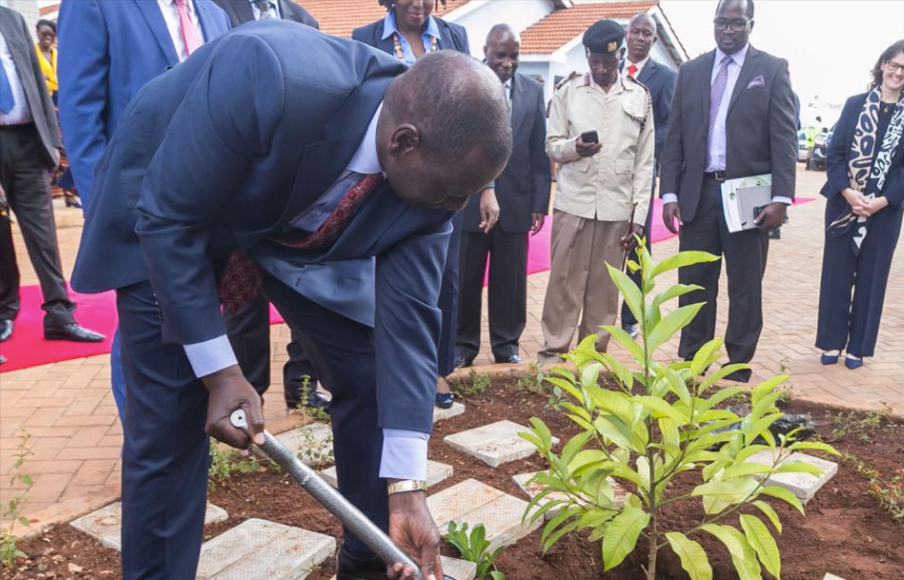Why planting trees should not be a one-time event

In early November, more than 45,000 individuals representing governments, corporations, non-governmental organizations (NGOs), and civil society organizations gathered in Sharm El-Sheikh, Egypt, for the COP27 conference. Their objective was to come to a consensus on how to combat climate change and its effects, considering the threat that looms over us.
Together, the members worked toward several objectives, including climate change adaptation and mitigation. This agenda highlights the essential need for continuous reforestation.
During the COP26 event in Glasgow last year, 45 countries signed up for the Glasgow Leader’s Declaration on Land and Forest Use, whose goal was to halt and reverse forest loss and land degradation by 2030. A year later, efforts in different parts of the world, including Kenya, are bearing fruits and an approach to keep the exercise regular will accelerate this noble cause.
According to the National Forest Resources Assessment (NFRA) Report 2021, Kenya’s tree cover now stands at 12.13 per cent. The forest cover stands at 8.83 per cent up from 5.9 per cent in 2018. However, more effort is needed to make reforestation regular in order to speed up the forest cover drive.
Data from the Global Forest Watch on Kenya’s Deforestation Rates and Statistics indicates that Kenya has lost 368 kilo hectares of tree cover, which translates to an 11 per cent decrease between 2001 to 2021. The loss is attributed not only to human settlement activities but also to a culture that surrounds the tree planting notion. While many organisations and people engage in tree-planting, there is a need to shift to a tree-growing culture considering that there is more to be done to ensure successful transition of a seedling to a tree and not simply dropping and burying a seedling in a hole.
This new approach will help us attain more tree cover in many parts of the country. As a result, it will help in climate change mitigation by absorbing and storing carbon emissions as per the 2019 research by Science Journal, which indicates that planting billions of trees around the world would be the cheapest and most effective way to tackle the climate crisis.
With regular reforestation, the country will further cultivate a sustainable environment from generation to generation. Borrowing this experience from organizations like KenGen – East Africa’s leading energy producer – the experience will further create a younger generation of environmentalists who will be aware of what it takes to plant, grow and safeguard our forests.
For instance, through the Green Initiative Challenge (GIC) – a tree planting and growing initiative in Arid and Semi-Arid Areas – KenGen creates awareness and encourages participation of school children in climate change mitigation by teaching them valuable skills on environmental conservation, sustainable management, and promoting safe harvesting of trees.
The experience has played a critical role in KenGen’s environmental sustainability agenda, whereby over 1.9 million trees have been grown and 300 hectares of tree cover achieved in the last seven years.
As the regular reforestation culture gets entrenched in our lives, other resources that play a critical part in our economy get a boost. Aspects like power generation through modes like hydro will benefit, considering that tree planting and growing plays a vital role in ensuring our rivers and dams are safeguarded and constantly supplied with water.
With data from the International Energy Agency indicating that hydropower in Africa is particularly susceptible to the adverse impacts of climate change, regular tree planting can mitigate this by safeguarding water catchment areas, thereby constantly supplying our continent with clean energy for development.
According to the Ministry of Environment and Forestry, the government plans to plant five billion trees in the next five years and an additional 10 billion by 2032. It is estimated that this will eventually lead to the rehabilitation and restoration of 10.6 million hectares in the 290 constituencies and some specially selected ecosystems and water towers.
Organizations need to opt to keep reforestation efforts more regular with the aim of restoring the forestry sector. This will be a major carbon sink for Kenya, moving the country towards a low-carbon emitting nation.
Eventually, Kenya will offer a great opportunity to other countries in benchmarking on matters of reforestation and combating climate while ensuring we hand over a more sustainable planet to future generations.
— Abraham Serem is the Acting Managing Director KenGen —md&ceo@kengen.co.ke












